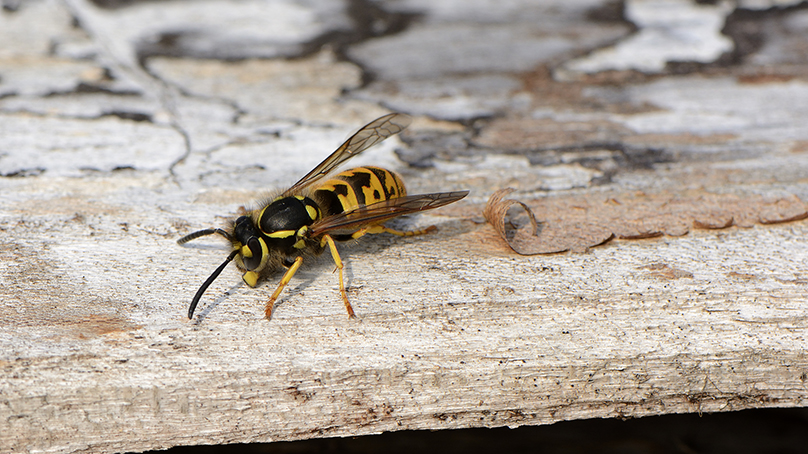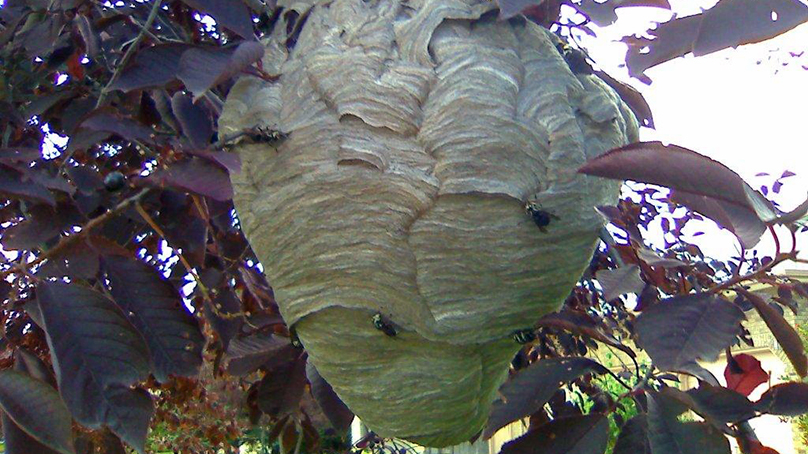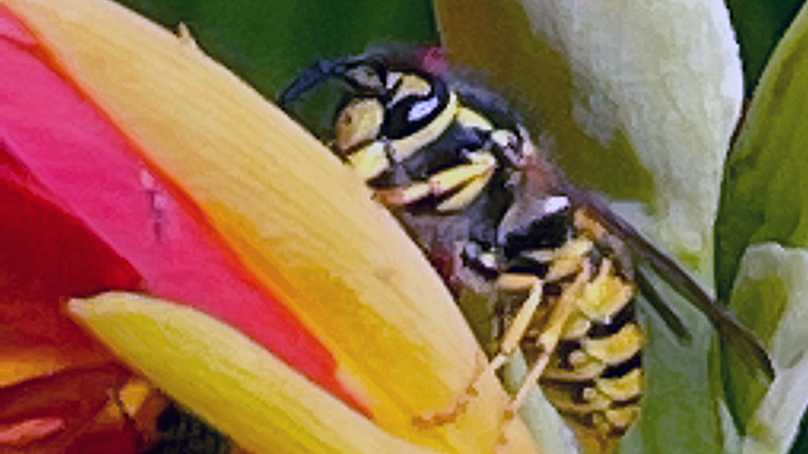Skip being stung: Tips to deal with the aggressive wasp population
This summer’s weather has made it ideal for the insect
September 2, 2021

As the summer weather wanes, you may have noticed more wasps buzzing around. While they are beneficial to ecosystems because they control insect populations, when their food supply diminishes they become more aggressive and can even be life-threatening to people who are allergic.
“This summer, we have noticed wasp activity is above normal because of the hot dry summer we’re experiencing and this has allowed their populations to build up quickly,” said Ken Nawolsky, Superintendent of Insect Control.
Wasps can sting multiple times since their stinger is barbless and does not come out when it pierces your skin. While it is easier said than done, Nawolsky said remaining calm and not annoying wasps by swatting can decrease your chance of being stung.
Nawolsky said wasps are attracted to anything that looks or smells like a flower so he suggests avoiding wearing bright colours and skipping putting on perfume or cologne can make you less attractive for wasps.
If you are eating outdoors, keep all food and drinks covered, except when actually serving or eating, and always keep trash containers covered.
A homemade wasp catcher can be helpful in attracting wasps away from busy areas in your yard. Nawolsky said you can simply cut a two-liter pop bottle in half, and place the top part of the container inverted, into the bottom part of the container, then fill it with a sugary liquid and place it away decks, patios, or other areas where people gather.
Wasps create a new nest each year when a solitary female or 'queen' emerges from hibernation in the spring. The queen builds a small golf ball sized nest for the first generation of workers that she raises on her own. They collect food and materials for the queen to lay more eggs to increase the population. Larvae are fed pre-chewed insects and other materials while adult workers generally feed on flower nectar and fruits.
So far this year, we have treated more than 70 wasp nests on public property, which Nawolsky said is earlier than normal.
Removal of the nests should only be considered if they are causing safety concerns. You should always be cautious when spraying wasp nests as the wasps will try to defend their nests. Plan a retreat line, wear long-sleeved tight fitting clothing, and tape your pants and sleeves closed.
If you are unsure of how best to tackle wasps, you can contact an exterminator.


